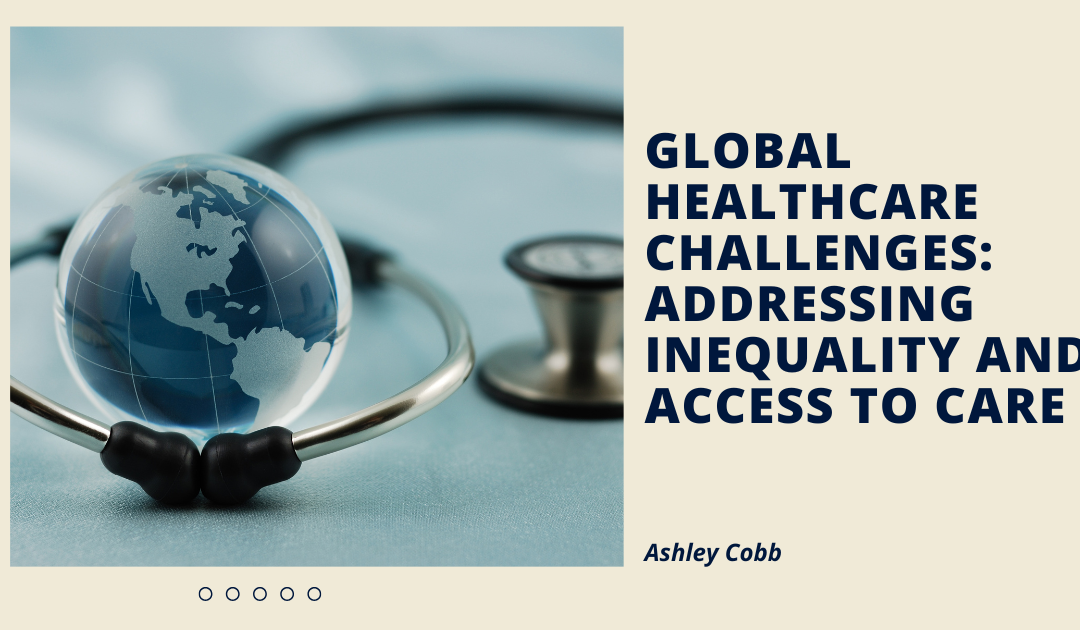Healthcare is a fundamental human right, yet millions of people around the world still lack access to essential medical services. The global healthcare system faces significant challenges, including disparities in access, shortages of healthcare professionals, and rising costs. Addressing these challenges requires coordinated efforts from governments, healthcare providers, and international organizations to create equitable systems that ensure everyone, regardless of location or socioeconomic status, receives the care they need.
One of the most pressing issues in global healthcare is inequality in access to medical services. In many low-income and developing countries, basic healthcare remains out of reach due to a lack of infrastructure, funding, and trained professionals. Rural communities are particularly affected, with residents often traveling long distances to reach the nearest healthcare facility. Even in developed nations, marginalized populations, including low-income individuals and ethnic minorities, often face barriers to quality healthcare due to high costs, lack of insurance, or systemic biases in medical institutions.
Economic factors play a significant role in healthcare inequality. Many countries operate under healthcare systems that prioritize profit, leading to expensive treatments and medications that are unaffordable for a large portion of the population. In the United States, for example, medical debt is a leading cause of financial distress, with millions struggling to afford basic treatments. Meanwhile, in countries with universal healthcare, such as Canada and the United Kingdom, long wait times and shortages of healthcare professionals can delay critical treatments. Balancing affordability and efficiency remains a major challenge for governments worldwide.
Another global healthcare challenge is the shortage of medical professionals. Many developing countries suffer from a severe lack of doctors, nurses, and trained healthcare workers, forcing existing staff to work in overburdened conditions. This issue is further compounded by the migration of skilled professionals from low-income countries to wealthier nations in search of better salaries and working conditions. As a result, regions already struggling with healthcare access are left with even fewer resources to meet the needs of their populations.
The COVID-19 pandemic exposed and intensified healthcare disparities across the globe. Wealthier nations were able to secure vaccines and treatments quickly, while many developing countries faced supply shortages and limited distribution networks. The unequal access to vaccines highlighted the broader issue of healthcare inequality, emphasizing the need for global cooperation in distributing medical resources more fairly. Strengthening international collaboration and ensuring equitable access to life-saving treatments must be a priority in addressing global healthcare challenges.
Innovations in telemedicine have shown promise in bridging the gap in healthcare access, especially for remote and underserved populations. Virtual consultations, mobile health applications, and AI-powered diagnostics can help connect patients with medical professionals without requiring travel. However, the effectiveness of telemedicine depends on internet access, technological literacy, and government support. Many low-income regions still lack the digital infrastructure necessary to fully implement these solutions, limiting their impact on healthcare equality.
Addressing global healthcare challenges also requires tackling social determinants of health, including education, nutrition, and living conditions. Poor housing, lack of clean water, and food insecurity contribute to high rates of disease and malnutrition, particularly in impoverished communities. Governments and organizations must invest in public health initiatives that go beyond medical treatment, focusing on preventative care, health education, and social support programs. When communities have access to nutritious food, clean environments, and basic education, their overall health outcomes improve significantly.
Pharmaceutical accessibility is another key issue in global healthcare. Many life-saving drugs, including those for chronic conditions such as diabetes, HIV, and cancer, remain unaffordable for patients in low-income countries. The high cost of research and development, along with patent protections, keeps essential medications out of reach for those who need them most. International efforts to promote generic drugs, negotiate fair pricing, and improve distribution networks can help make essential medicines more affordable and accessible.
Women and children are particularly vulnerable to healthcare disparities, especially in regions with limited maternal and pediatric care. In many parts of the world, maternal mortality rates remain high due to inadequate prenatal and postnatal care. Lack of access to skilled birth attendants and emergency medical services further contributes to preventable deaths. Investing in maternal and child health programs, increasing access to vaccinations, and improving reproductive health education can help reduce these disparities and ensure better outcomes for future generations.
Solving global healthcare challenges requires a multi-faceted approach that includes policy reforms, financial investments, technological advancements, and international cooperation. Governments must prioritize healthcare funding, expand access to affordable insurance, and invest in the training and retention of medical professionals. At the same time, global organizations such as the World Health Organization (WHO) and non-governmental organizations (NGOs) must continue to advocate for equal healthcare access and support countries in building sustainable medical infrastructures.
Equity in healthcare should be a universal goal, ensuring that no one is denied medical care due to financial constraints, geographic location, or systemic discrimination. By addressing inequality in healthcare access, promoting innovation, and strengthening global partnerships, the world can move closer to a future where quality medical care is available to all, regardless of their circumstances.

